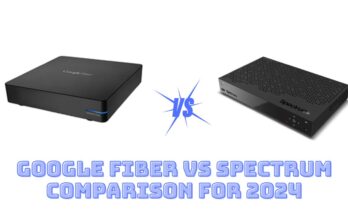As technology continues to advance, the world is becoming more connected. This has led to an increased demand for wireless connectivity, and two terms that often come up in discussions about wireless connectivity are WiFi and wireless internet.
Although these two terms are often used interchangeably, there is a difference between them. In this article, I will explain the differences between WiFi and wireless internet, the advantages of each, and how to choose the right option for your needs.
Introduction to the Difference Between WiFi and Internet
WiFi is a technology that uses radio waves to provide wireless high-speed internet and network connections. It is a popular choice for connecting to the internet because it is easy to set up, widely available, and relatively inexpensive.
Wireless internet, on the other hand, refers to any method of connecting to the internet without using cables or wires. This includes WiFi, but it also includes other technologies such as cellular data, satellite internet, and WiMax.
Understanding the Basics of WiFi
WiFi is a wireless networking technology that uses radio waves to provide high-speed internet and network connections. It is based on the IEEE 802.11 family of standards, which define the specifications for wireless local area networks (WLANs). WiFi operates in the unlicensed 2.4 GHz and 5 GHz frequency bands, which means that anyone can use it without needing a license.
WiFi networks consist of a wireless access point (WAP) and one or more wireless clients. The WAP is connected to the internet through a wired network, such as an Ethernet network. The wireless clients connect to the WAP using radio waves, allowing them to access the internet and communicate with other devices on the same network.
What is Wireless Internet?
Wireless internet refers to any method of connecting to the internet without using cables or wires. This includes WiFi, but it also includes other technologies such as cellular data, satellite internet, and WiMax.
Cellular data is a wireless internet technology that uses cellular networks to provide internet connectivity. It is commonly used in smartphones and tablets, and it allows users to access the internet from almost anywhere.
Satellite internet is a wireless internet technology that uses satellites to provide internet connectivity. It is commonly used in rural areas where other types of internet connectivity are not available.
WiMax is a wireless internet technology that uses microwave frequencies to provide high-speed internet and network connections. It is similar to WiFi, but it operates at a much longer range and can cover larger areas.
Differences between WiFi and Wireless Internet
While WiFi is a type of wireless internet, there are some key differences between the two. WiFi is a wireless networking technology that uses radio waves to provide high-speed internet and network connections. It is based on the IEEE 802.11 family of standards and operates in the unlicensed 2.4 GHz and 5 GHz frequency bands.
Wireless internet, on the other hand, refers to any method of connecting to the internet without using cables or wires. This includes WiFi, but it also includes other technologies such as cellular data, satellite internet, and WiMax.
Another key difference between WiFi and wireless internet is the range. WiFi networks typically have a range of around 100 feet indoors and up to 300 feet outdoors, depending on the strength of the signal. Wireless internet technologies such as cellular data and satellite internet can cover much larger areas, making them ideal for use in rural areas where other types of internet connectivity are not available.
Advantages of WiFi over Wireless Internet
One of the main advantages of WiFi over other types of wireless internet is its speed. WiFi networks can provide high-speed internet and network connections, making them ideal for use in homes, offices, and other locations where high-speed internet is needed.
Another advantage of WiFi is its convenience. WiFi networks are easy to set up and use, and they do not require any special equipment or cables. This makes them ideal for use in locations where other types of internet connectivity are not available, such as coffee shops, airports, and hotels.
Advantages of Wireless Internet over WiFi
While WiFi has its advantages, there are also some advantages to other types of wireless internet. One of the main advantages of cellular data and satellite internet is their range. These technologies can cover much larger areas than WiFi, making them ideal for use in rural areas where other types of internet connectivity are not available.
Another advantage of wireless internet is its mobility. Cellular data and satellite internet can be used while on the move, making them ideal for use in cars, buses, and trains. This is not possible with WiFi, which is limited to a specific range around the WAP.
How to Choose Between WiFi and Wireless Internet
When choosing between WiFi and other types of wireless internet, there are several factors to consider. The first is speed. If you need high-speed internet and network connections, WiFi is the best option. However, if you live in a rural area where other types of internet connectivity are not available, cellular data or satellite internet may be the only option.
The second factor to consider is range. If you need internet connectivity over a large area, cellular data or satellite internet may be the best option. However, if you only need connectivity within a specific range around the WAP, WiFi is the best option.
Finally, consider mobility. If you need internet connectivity while on the move, cellular data or satellite internet is the best option. However, if you only need connectivity in a fixed location, such as a home or office, WiFi is the best option.
Future of WiFi and Wireless Internet
As technology continues to advance, the future of WiFi and wireless internet is bright. New technologies such as 5G and Wi-Fi 6 are being developed that promise to provide even faster and more reliable wireless internet and network connections.
In addition, the Internet of Things (IoT) is becoming more prevalent, which means that more devices will be connected to the Internet. This will increase the demand for wireless network connections, making to Netother types of wireless internet even more important in the future.
Conclusion
In conclusion, WiFi and wireless internet are not the same things. it’s is a type of wireless internet that uses radio waves to provide high-speed network connections, while wireless Net refers to any method of connecting to the without using cables or wires.
When choosing between WiFi and other types of wireless internet, consider factors such as speed, range, and mobility. If you need high-speed network connections in a fixed location, WiFi is the best option. However, if you need internet connectivity over a large area or while on the move, cellular data or satellite internet may be the best option.
Ultimately, the choice between other types of wireless internet will depend on your specific needs and circumstances. By understanding the differences between these technologies and considering your own needs, you can make an informed decision and choose the right option for your internet needs.



